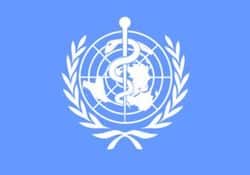 The World Health Organization is calling for the International Classification of Diseases (ICD) to remove a number of "homosexuality-related psychological disorders" that implicitly consider homosexuality to be a mental disease. Currently, the WHO does not technically consider being gay, lesbian, bisexual, or transgender to be a form of psychological disorder. However, the codification of “ailments” related to homosexuality, the organization says, supports old antiquated ideas about queerness.
The World Health Organization is calling for the International Classification of Diseases (ICD) to remove a number of "homosexuality-related psychological disorders" that implicitly consider homosexuality to be a mental disease. Currently, the WHO does not technically consider being gay, lesbian, bisexual, or transgender to be a form of psychological disorder. However, the codification of “ailments” related to homosexuality, the organization says, supports old antiquated ideas about queerness.
“[T]he Working Group found no evidence that they are clinically useful: they neither contribute to health service delivery or treatment selection nor provide essential information for public health surveillance.” The WHO's study reads. “Moreover, use of these categories may create unnecessary harm by delaying accurate diagnosis and treatment.”
Going forward the WHO's recommendations must be deliberated upon by a body of over 170 public health ministers representing the companies that compose the organization. Certain countries with demonstrated histories of homophobia that are a part of the WHO are likely to voice opposition to the proposed revisions, echoing the intense debate that broke out in the 1970s when the American Psychological Association removed homosexuality from the DSM.
Despite that initial step in the right direction, Emily Underwood reports in Science, homosexuality proper being removed from the DSM did not end the manual's pathologization of queer people. The same could be true of the ICD:
Although APA removed the diagnosis from the Diagnostic and Statistical Manual of Mental Disorders (DSM) in 1973, they replaced it with a new disorder called sexual orientation disturbance as a political compromise. This was later changed to ego-dystonic homosexuality. The disorder referred to the anxiety or depression one might feel about being homosexual or the desire to change one's sexual orientation.
The WHO is currently performing trial runs of its new criteria in Brazil, India, Lebanon, Mexico, and South Africa. Read through the World Health Organization's argument against pathologizing homosexuality AFTER THE JUMP…



